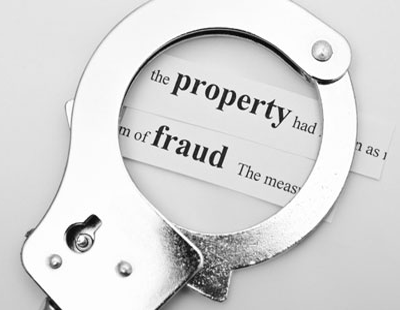
A prominent law expert is claiming that a high profile case of property fraud, reported earlier this week, involved a “devastating lack of due diligence.”
On Tuesday we reported a BBC interview which revealed that a man’s house was sold and his furnishings removed without his knowledge.
The Reverend Mike Hall was working away from his property in Luton and tipped off by neighbours that building work was under way in his home. Hall's identity had been stolen and used to sell the house and the fraudster was able to bank the proceeds.
Now Sophie Swanborough, of legal sector risk mitigation consultancy Lawyer Checker says: “The cyber crime risk that conveyancers face is unfortunately a threat that is ever-growing and evolving. The SRA reported that during the first lockdown when lots of firm’s hurried to adapt to a new way of working, there was a 337 per cent rise in reported phishing scams.
“This recent news report about a man’s house being ‘stolen’, is all the more shocking as the audacity and impudence of the criminal when aligned with the devastating lack of due diligence across the whole home buying process, meant such a situation occurred.
“Ensuring demonstrable due diligence practice is in place across every transaction is of vital importance. Utilising Lawyer Checker’s Consumer Bank Account Checker to validate the destination of funds is an easy way to incorporate such measures. Conveyancers can also be assured of a fellow firm’s bank details before transferring funds by utilising a Lawyer Checker Account & Entity Screen search. Also, confirming a client’s identity and source of funds is simple when using the Thirdfort ID Checker to give firm’s assurance when onboarding clients. All simple, yet effective approaches that can easily be adapted into every conveyancing case.”
This principle has been endorsed at the conveyancing industry’s highest level.
A statement from the Conveyancing Association says in the case of the Luton property, circumstances aligned with a lack of conveyancing due diligence.
Those unfortunate circumstances were set out by the Conveyancing Association as:
- Empty / irregularly inhabited properties with no mortgage are at particular risk and would make it much easier for criminals to commit such offences;
- The criminal intercepts post to the said property, potentially with a simple postal redirect request;
- With access to personal documents, in this instance the victim’s driving license, the criminal can set up a bank account in the victim’s name;
- Without conducting appropriate due diligence on the ‘client’, it’s easy to see how sale funds can be sent to the wrong place. The conveyancer’s position of trust with client’s funds deserves appropriate checks so that heart-breaking mistakes like this don’t go unnoticed.
You can see the EAT story on the Luton fraud here.













.png)


.jpg)
.jpg)





%20-%20IMAGE%20Client%20Accounting%20%E2%80%93%20what%20are%20your%20options.jpg)


.png)
.png)
.png)
%20(002).png)






%20(002).jpg)



.png)




Join the conversation
Jump to latest comment and add your reply
The allegation of “a devastating lack of due diligence.” has not been clarified/set out. What did the relevant law firms do, or not do, by way of due diligence?
I agree Rob.
What this story actually indicates is a devastating lack of evidence and an ivory tower posturing from those not in the front line.
Other than that, cracking reprint of a press release.
I appreciate that this is estate agency today, but a finger can't just be pointed at the conveyancer for these situations. Estate Agents also have a duty of care to ensure that they are not participating in any fraudulent activities. A robust ID/AML solution must be adopted by more agents to ensure that this type of exposure to risk is reduced. Getting a decent ID/AML report utilising the latest technologies along with a copy of the title register will help at the start of marketing.
"Just wondering what level of due diligence was carried out by the agent when taking the onstructions to sell. We all have responsibilities in this respect. Not passing the buck but we should all fulfill our obligations in this respect." Via Linkdin
"Surely the banks must take some of the blame here. Us poor conveyancers are going the extra mile checking ID documents plus all our other checks, but if the banks are opening up accounts that are not genuine, they also fell into the fake passport trap. If the banks were better at checking ID in the first instance then we would not be in this situation.
If bank accounts can be opened without any issue using fake ID then that would suggest it is a rather good copy?
I would be interested to hear from the banking prospective." Via the BLG online forum
This EAT article appears to be a misrepresentation of an article orginating with Lawyer Checker. Very clearly there were mistakes made across the whole homebuying and selling process.
If the fraud was done in a way to two similar cases of which I am aware then what more due diligence can an agent carry out? In both cases the perpetrators were tenants. They changed their names by deed poll to that of their landlord and procured passports in their new names. So the passport and the utility bills matched the registered name on the title. And the vendor matched the passport photo.
Is there a register giving the previous names of people that have changed their name by deed pole? Thanks to data protection probably not!
Please login to comment